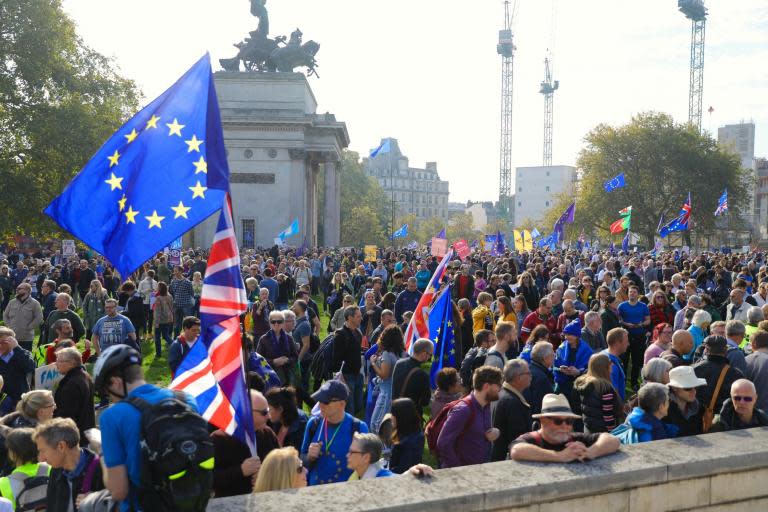Beyond the march, The Independent presses MPs to keep our options open on the most important decision in generations
Now the government knows how strongly so many people feel. This was important to help shift the boundaries of the possible. It means that, more than ever before, another referendum is part of the realistic range of options – especially if the Brexit talks fail.
Today’s march was a huge outpouring of support for the simple principle that, whatever happens in the Brussels negotiations, the British people ought to have the final say on what happens to their country.
The Independent is proud that its campaign was part of such a large mobilisation to take back democratic control. We will continue to push for more signatures for our online petition to give people a final say, now signed by more than 940,000. And we urge everyone who was on the march to continue to press their MPs to keep the nation’s options open as the Brexit negotiations enter their final phase.
In the end, the size of today’s demonstration was the best answer to those try to present the vote on 23 June 2016 as an immutable decision. Yes, we respect that decision of the British people. We respect it so much that we are not afraid of allowing the British people to confirm it – or to change their minds.
There is a lot that is clear now, and that will be clearer when the Brexit negotiations have concluded, in “success” or failure, that was not clear two years and four months ago.
Many politicians have changed their minds. There has been a lot of churn between, for example, support for staying in or out of the single market, or a customs union (something that hardly featured in the referendum campaign), or for or against various proposals for the Irish border.
If the politicians are allowed to change their minds about Brexit, why should the people not be allowed to confirm or amend their original decision?
This question becomes even more pertinent if the politicians continue to be deadlocked. There is no majority in the House of Commons for any of the four main options.
Jacob Rees-Mogg and his band of irreconcilables want to leave without a deal and regard the economic dislocation of border checks next March as a price worth paying. At most about 80 MPs, an eighth of the total, agree with him. The rest of the Conservative Party reluctantly supports the prime minister’s plan, no longer called “Chequers”, although it has not yet been agreed with the European Union.
Then there is the option of a closer, Norway-style relationship with the EU, which the bloc has indicated it would accept, and which is supported by many Labour MPs and – as a temporary solution – by some Conservatives such as Nick Boles, who is close to Michael Gove, the Eurosceptic environment secretary. Finally, there is the option of remaining in the EU, and continuing to try to reform it from within.
If the politicians cannot decide, or, worse, if they try to fix the procedures of the Commons to prevent MPs from amending the government’s preferred option, then the argument for returning the decision to the people becomes irresistible.
In the end, who can deny the right of the British people to make the final decision about their future?

 Yahoo News
Yahoo News 

